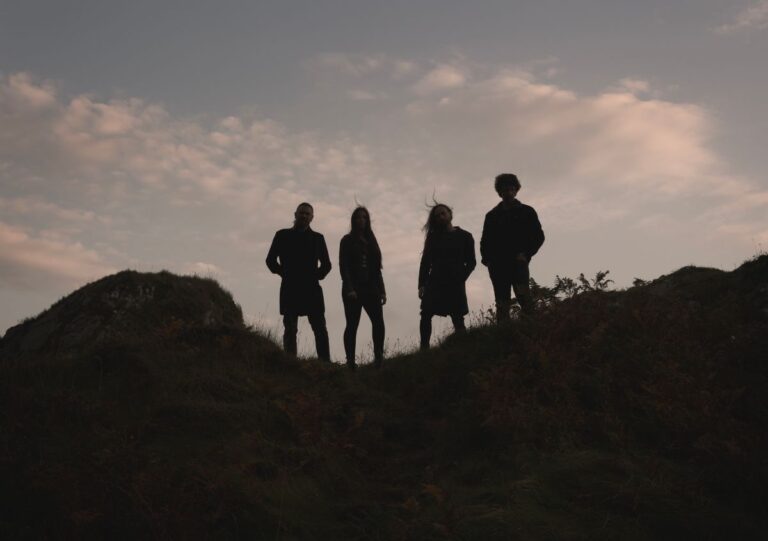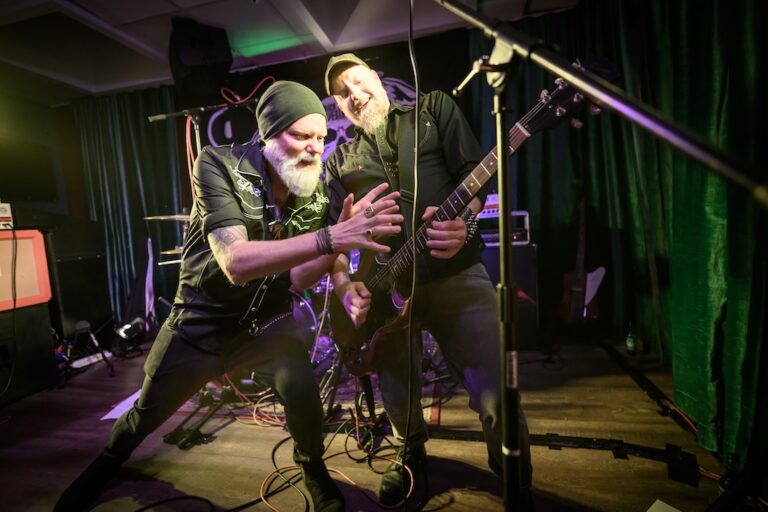Any opportunity to speak to Danny Bryant is an absolute pleasure. Despite a prodigious work ethic, matched by a rapidly expanding fan-base, Danny remains incredibly down to earth. A fan, first and foremost, pitch a question about his music and you can almost hear the twinkle in his eyes as he discusses his band. It’s a passion project first and foremost, and you get the impression that the fact that his music has enabled him to tour the world is an incredible bonus to something that he’d be doing regardless of the following it accrued.
Taking the time to go into the detail behind the remarkable means of escape album, Danny kindly spoke at length. Read on (preferably with the fantastic album in the background) and find out more about an album that has just this day hit number one in the Amazon Blues Best Seller Charts.
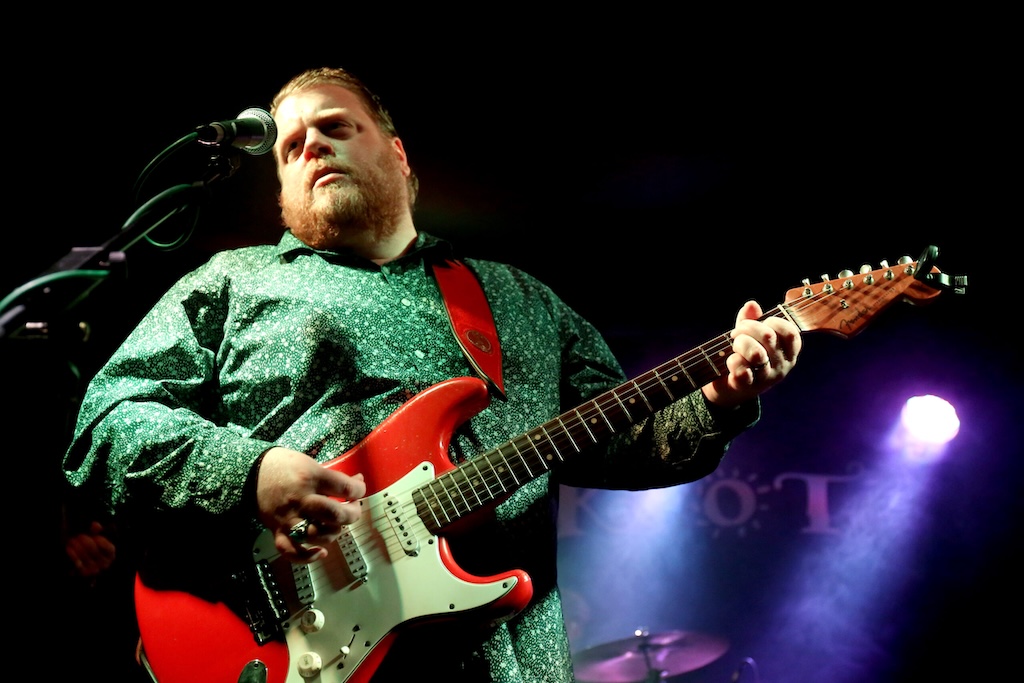
Hi Danny, this is Phil from SonicAbuse, thank you for agreeing to speak to me.
It’s nice to speak to you, thanks.
I wasn’t expecting you to have an album out quite so quickly…
We’ve been quite prolific over the last years, ever since ‘revelations’, it keeps things interesting for me, touring new songs and for the audience as well, obviously.
It’s a really interesting concept in the title – this idea of music as a means of escape – I think it’s something that a lot of people use it for, but I can’t think of many albums that have articulated the idea through the title quite so succinctly…
Yeah, it’s just… because ‘revelations’ was quite a dark album and I thought maybe we’d have ‘redemption’, but then I though it’s more ‘means of escape’ and I saw that written up somewhere and I thought that that’s how I think about it – it’s…whether I’m happy, or if I’m down or anything, it’s kind of my way out.
I agree, it encapsulates what a lot of music fans feel, especially within the blues genre, it seems to be the perfect way of expressing that philosophy.
Oh yeah, definitely. When I talk about music as a means of escape, I’m not just talking about me creating music, it’s me listening to other people’s music as well.
Kicking off the album, you’ve got a really gritty, heavy blues track called tired of trying and I know it says in the liner notes that that song came about as a result of speaking to Walter Trout…
Yeah, we’d gone out for dinner and, you know, if we cross paths on tour we try to meet up. He’s like another dad to me – and we went back to the hotel and we were listening to his new album and he was asking me what I was going to do for the next one and we just talked about how he’s mentored me through the years and it was kind of like, we I was younger, don’t worry about wearing your influences on your sleeve, because eventually your own style will come through. And then, he said I’d kind of done that and I’d found my style but that I could still wear my influences on my sleeve. And because we were listening to his album, ‘Survivor blues’, which is kind of a tribute to all these old blues guys an he was really paying homage to them and I just thought I’d do a dead-on kind of tribute to him.
That’s a big part of the blues, isn’t it, to pay tribute to your influences by reinventing through covers or riffing on those same ideas…
Yeah, and it’s a lot of fun if you’re open about it. You can’t pretend you’re reinventing the wheel or something like that…
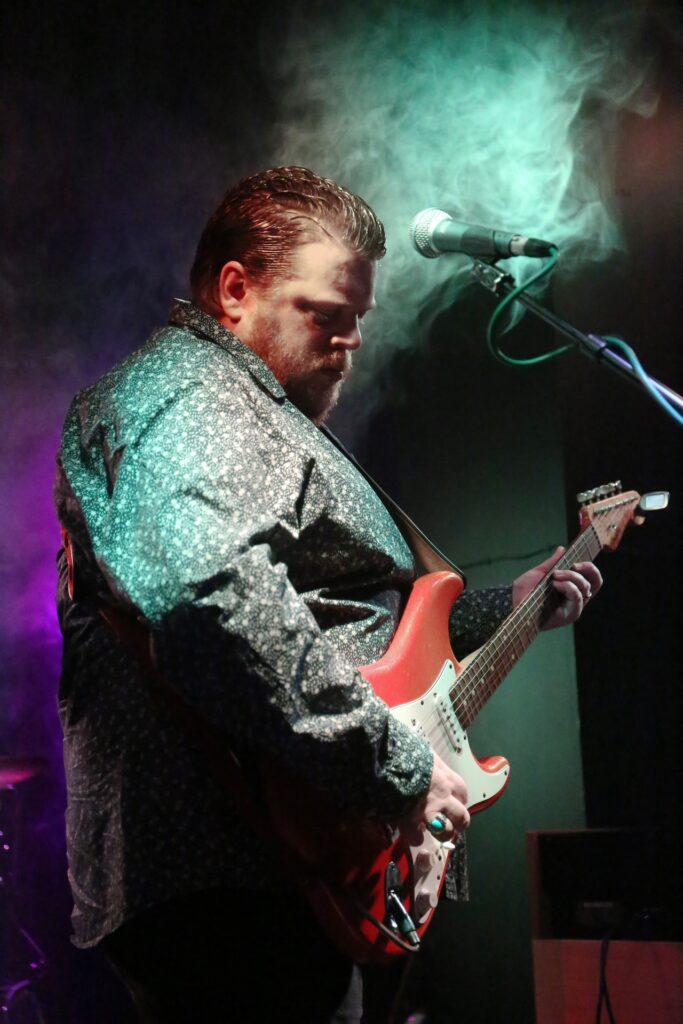
I was speaking to an artist relatively recently and one of the things he said was that, for a while, he almost got writers’ block because he felt that he did need to reinvent the wheel and it came to him that there’s a language that you can use within the genre and that it’s not a problem to use it…
Yeah, I’ve done a lot of interviews in the last few days about this album, people asking me whether I get writers’ block and if it gets harder or easier, and for me, writing has become easier.
I think because what I used to do is, between albums I’d say to myself “well, OK, I’ve made an album, I’m not due in the studio for another fourteen months, I won’t write anything for a year because then it’ll come out fresh…” but, of course, writing songs is just like anything. If you don’t practice it and work on it… not necessarily daily but if you don’t keep it up, you kind of lose that ability. So, I wouldn’t really write anything for a year and then I’d come back and have to start from scratch.
So, now, if something presents… and I don’t mean it in a mystical way, but sometimes songs just force themselves on you in the same way you’ll hear, like and advert – a jingle that you can’t get out of your head… and sometimes you’ll get an idea that you can’t get out of your head and so the only way is, for me… I just do a rough phone demo, or I write it down or something like that and then I’ve got it and I’ve kept it. But equally I’ve learnt that, if something isn’t happening or isn’t flowing, to walk away from it. So, in hindsight, when I have an album an it’s time to go in the studio I can look back at some of these demos, which can be a year old, I can look back at them as if they’re not mine and be very critical and pull out what I need and put in what they lack.
That’s really interesting because I tend to find that creative spark… when you come out of doing a record, all that adrenaline from finishing the thing that you’ve been working on for a year or more, it’s very productive to put that adrenaline to writing more and allowing that spark to run its course whereas if you try to sit down and say “I’m going to write a song” and you try to force it, it can be really hard.
I think that’s a great point and for me, for some people it might, but for me, I found it didn’t work wen my back was against the wall. It became more generic, whereas, say, I finish talking to you and have an idea… I don’t know when I’ll be going into the studio next, but probably in a year’s time, but I’ll put that idea and I’ll keep it and I think that, for me, it’s a healthier way of doing it and I think, in a way, see my original idea of saving periods and saving myself from writing so that it couldn’t become samey, is actually more beneficial that I write over the process.
And, like you said, you get that opportunity to look back from a fresh perspective, so a really cool riff tat goes with a chorus that maybe doesn’t work – these things can be salvaged and you can get that creative flow going again – I think it’s a really exciting way of working.
Yeah, well that’s a good point that you just made because sometimes it is like a jigsaw puzzle. There’s no reason that I can have a riff and, if the rest of the song doesn’t work, I’ll lift that for another idea and I might have to sacrifice two songs to make one, but that’s fine, there’re no rules to it.
Something else that is different on this album is that you’ve produced it yourself, which I think is the first time you’ve done that?
Yeah. Just basically because we wanted to capture a lot of this live so, I jokingly said “So, I’m going to choose which take’s going to be the best one…” and I’m the one person that’s been to all of my gigs. But it wasn’t as boring as it sounds and we surrounded ourselves with so many good people that it was, literally, picking the best takes and it was a lot of fun. It’s quite liberating actually.
I think it can be very helpful if you’ve got an engineer who’s very comfortable with that process and can lend you that second pair of ears if you need it.
Yeah, and working with Ian, that was great because he didn’t ever step on my toes but he wasn’t that kind of person where I’d ask him what he thought and he’d say that he wasn’t paid to produce – he’d have an opinion and that’s always helpful. Obviously, the band as well – you need that second opinion.
Then you sent this off to Eddie Spear to get it mixed – different artists approach that in different ways. Some are very hands on and want to go through the process piece by piece, others are happy to let people do that jigsaw on their ow. How do you find sending off the album, particularly one you’ve produced yourself?
Well, it’s the first time I’ve done it that way. I like to be there when it’s mixed. But the whole thing with this album was, you know, it’s a blues album, but I thought “why can’t a blues album have up-to-date guys working on it?” You had Ian Dowling, who’s known for working with Adele and K T Tunstall and Eddie Spear had just finished mixing U2’s album and then his next project was mixing me, which was a tiny project compared to the people he normally works with. But there’s no reason that a blues album can’t have that modern sonic approach in terms of the engineering and mixing. So, really, we had fun discussions and he asked me what I wanted and I told him that I was already a fan of his mixes, especially the stuff he’d done for the Rival Sons and people like that and I just wanted it to be very clear and bold sounding. And, you know, really with modern technology, he’d send me the mixes and there’s be a couple of little tweaks that I’d maybe suggest and then he’d send them again and it was a very easy process.
I think… we spoke once before, just when you’d done revelations – we discussed the idea of getting an album to flow and that’s kind of a part of the mastering and the finalising of the record and I was wondering if, again, it was a challenge to get these nine tracks into the order that gave the journey that you wanted.
Actually, it was… usually, I probably mentioned last time, that’s the bit that I hate the most – when you’ve finished, just trying to find an order that flows. This was the easiest one in that respect and I listened to it the other day and I really don’t see any of the tracks sitting in any other way than the order that they’re in but, in answer to your question, this time I think they kind of flowed exactly how I wanted them to, but that was just luck rather than judgement.
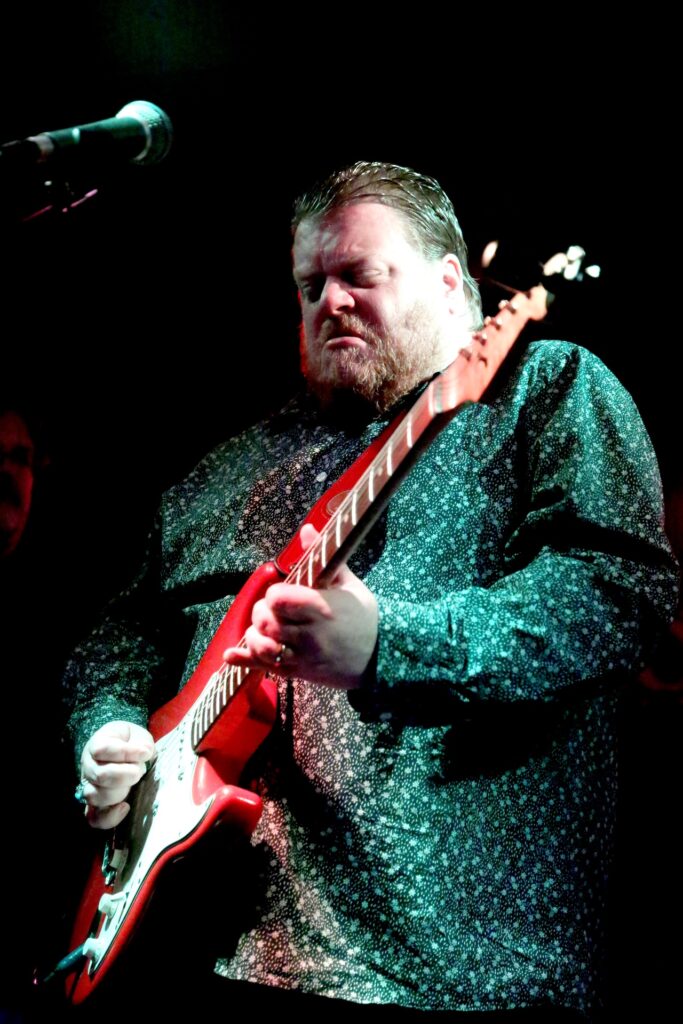
One of the other things that we briefly touched upon was working with the big band an you brought them in for too far gone, I think, that must have been an exciting session to do…
It’s great, I mean, the big band is one of the proudest achievements of mine. We originally put it together as a sort of one-off project to record a live album because it’s always been a dream of mine, but it kind of took off and now, I play about 100 shows a year and I’d say about 30% of those are with the big band and it’s really good to make that work financially, and to fill these bigger venues and to have twelve of us travel and nine on stage. And, as we do so many shows together now, in a lot of different countries, I wanted them to be on the album to keep that going, so that when we were playing songs from the new album, they’d work for the big band, so yeah, certainly we put them on ‘too far gone’ and ‘warning signs’ and ‘hurting time’.
You can’t beat that rich, organic sound you get from an expanded group – it’s so exciting when you hear stuff like that
It’s great to play with because I’d never done it, and I’d always wanted to and it’s so exciting to have a big sound behind you. It’s taught me a lot about where to play and where to leave space and when to make a stand and when not to. Also, I’m used to kind of jamming, but the horn players are all reading charts and when there’s nine of you on stage, you have to have set arrangements and that has taught me to kind of be stricter within my own approach to music, I think.
I think that can, in some ways, be the most challenging things for a guitarist to learn – to set back and let others take the lead, because it’s kind of ingrained in the role of the guitarist to always be out front.
Definitely, yeah, you’re totally right. The beauty of it now s that with four horn players and, obviously, we have a rhythm guitar and bass and drums and keys, there are so many people that can take the solos and I think it kind of makes my own solos more meaningful because people haven’t heard me all night and, as you get older…when you’re younger, I think I felt I needed to be all over everything.. was it an ego thing? Partly… partly it was just being more excitable. Now I’m happy… I like to let the band shine and then there are other parts of the set where it’s mine, you know.
The album art is an interesting counterpoint to revelation as well, because revelation had that very empty, cityscape shot and this one is much more up-close-and personal. Was that a deliberate counterpoint?
We did a couple of different shoots in different locations, but with regards to the cover, you know, we knew the title of the album (sometimes you don’t because they come into the studio and you’re still working on it), but I had the title for the album before we started recording and so it was kind of like that shot is me walking away or towards you, so I suppose it signifies the escape theme. But, to be honest with you, usually I do a couple of shoots, I keep the photo that I like and then we hand it over to the record company and the design team works on it and I think they’ve done a great job. I’ve not seen the demo – you probably just have a card-sleeve demo, do you?
That’s right, yeah…
The actual CD is like a 24-page booklet. They’ve done a great job and there’s lots of extra shots in there form the studio and things like that. I am still someone who likes to buy CDs and vinyl, so I like to get a decent booklet. I get disappointed if there’s not much info in there.
Oh, me too – form my early years it was always a joy to pore over the liner notes, maybe to discover new bands and the imagery and stuff – it’s always exciting when an artist puts time and trouble into that.
It’s part of the whole experience isn’t it, and I really hope we don’t lose that over the years because so many people now use digital and I understand all of that, of course, but I do love to sit, especially when I first get an album. I love to sit with the album and read it whilst it’s spinning.
It’s been a little while since you cut a live album – is that something you’re thinking about?
Well, we’re filming a TV show in Germany. We have one day booked to appear on a TV show over there and they’re going to film and record the whole show – it’s an hour-long show and once they’ve broadcast it, we own the rights to it so, if it comes out well, you never know.
